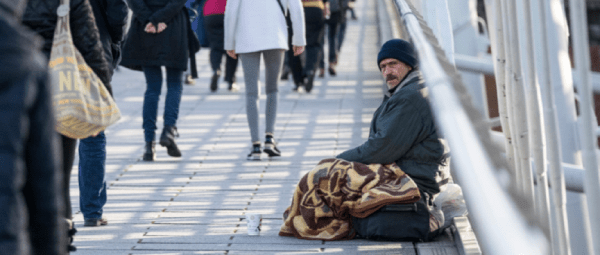At least 12,000 people experiencing homelessness went without drug and alcohol treatment in 2018, according to research by St Mungo’s – a year that saw a 55 per cent increase in drug poisoning deaths among homeless people.

Of more than 700 deaths of people sleeping rough or in emergency accommodation in 2018, two in five were related to drug poisoning (DDN, October 2019, page 4) and more than half were either alcohol or drug-related. Around 60 per cent of people sleeping rough now have a drug or alcohol problem, says the charity, up from 50 per cent four years ago, while London has seen a 65 per cent increase in women with substance problems sleeping rough since 2014-15.
Alongside new data analysis, the report includes in-depth interviews and peer research, and is one of the most comprehensive looks at the links between rough sleeping and substance use in two decades. The charity has declared the situation a health crisis, with cuts in funding for treatment services leading to ‘record numbers of people who are homeless living with, and dying of, preventable drug and alcohol problems’. The government needs to urgently join up health and housing in a new strategy to honour its commitment to end rough sleeping by 2024, the charity states, as well as increase funding for multi-disciplinary services and encourage the use of trauma informed approaches.

‘This is a neglected health crisis that requires rapid action,’ said St Mungo’s chief executive Howard Sinclair. ‘Our research shows that people who have already faced traumatic experiences throughout their lives are being turned away from life-saving treatment just when they need it most. Rough sleeping in England has increased by 165 per cent in the last ten years. Not only are hundreds of people dying from drug poisoning but even more are living in terrible conditions on the streets whilst tackling very serious ill health.
‘Now is the moment for ministers to show they are serious about the commitment to join up health and housing to end rough sleeping once and for all,’ he continued. ‘This means a comprehensive review of every death, a personalised fund to help everyone access life-saving treatment services quickly, and funding increases for integrated treatment, support and accommodation services.’
Knocked back: Failing to support people sleeping rough with drug and alcohol problems is costing lives at mungos.org
